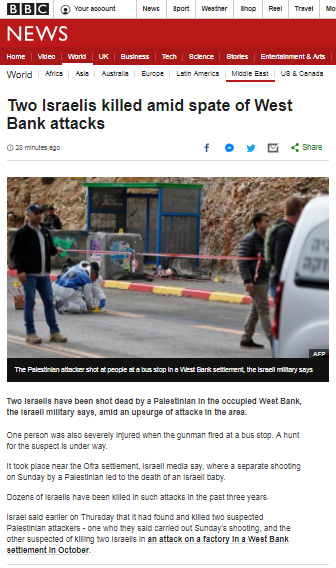Listeners to the BBC Radio 4 programme ‘From Our Own Correspondent’ on July 11th heard a prime example how a one-sided, inaccurate, politically motivated narrative can be mainstreamed into the public consciousness even in content which is not overtly political.
Presenter Kate Adie introduced the item (from 22:40 here) as follows, adhering to the now standard BBC practice of presenting last summer’s conflict between Palestinian terrorist organisations and Israel as an affair which took place exclusively in one location.
“It’s been a year now since the war in Gaza. Seven weeks of fighting, Israeli shells and Palestinian rocket attacks and much destruction in Gaza. Eighteen thousand properties there were destroyed, many people are still homeless today. Several hundred people crowded into a square in the centre of Gaza City on Wednesday to watch the armed wing of Hamas stage a rally marking the occasion. What were described as new missiles were put on show. Marie Keyworth recently spent the day with a Gaza family, watching them at work, going shopping with them at the market and joining them for lunch.”
If readers are curious about that Gaza City rally, which was not reported by the BBC’s Jerusalem Bureau staff, more information can be found here.
As readers will recall, Marie Keyworth visited the Gaza Strip and PA controlled areas in May on behalf of the BBC’s business department. Her latest report – which also appeared as a written article titled “Love in a time of conflict” on the BBC News website’s ‘Magazine’ and Middle East pages on July 13th – is not about business matters but ostensibly tells a whimsical tale of romance. In among, however, listeners and readers are fed statements which are presented without any context or qualification.
“Gaza is more often associated with conflict than love …”
“Of course it doesn’t take a genius to work out that some palm leaves trussed together with twine would do nothing to protect Ahmad and his siblings from the shells that fall on Gaza whenever a conflict erupts there.”
“But what the shelter does provide is something equally important – a kind of psychological security. Something painfully absent from Gazan lives, and something Ahmad clearly craved.”
“You could almost forget you were in one of the most densely populated and frequently bombed places on earth.”
“But of course the reality for Gaza is the constant threat of war.”
“After all, it’s far more fun to talk about stolen kisses than it is to talk about bombs.”
Keyworth’s narrative is one of entirely passive “Gazan lives” in a place where “conflict erupts” – apparently all by itself – and where “the shells that fall” when it is “frequently bombed” do so for no discernible reason. In Keyworth’s world there is no cause and effect, no responsibility and no agency. And of course, there is no terrorism.
That banal and inaccurate portrayal obviously not only does nothing to meet the BBC’s remit of building understanding of “international issues” but even deliberately entrenches a politically motivated false narrative which is already disturbingly prevalent.
Resources:
From Our Own Correspondent on Twitter
Radio 4 – contact




